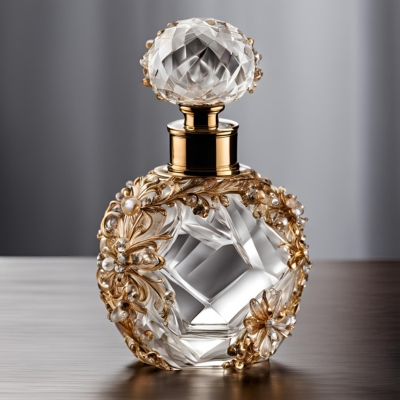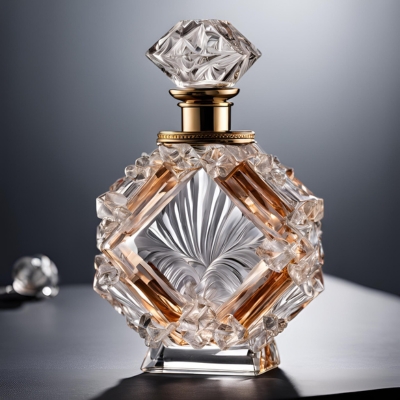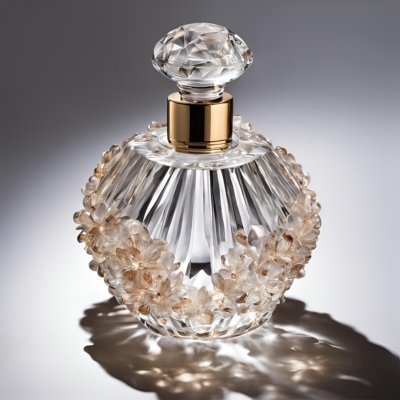The Captivating History of Perfumes: From Ancient Rituals to Modern Luxury
Over 200 million bottles of perfume are sold annually in the United States alone. This number highlights the popularity of fragrance and reflects its deep-seated roots in human history. The story of perfumes is a rich tapestry, woven from ancient rituals and cultural significance, evolving into the luxurious products you find on today's market.
Imagine standing in the bustling marketplace of ancient Egypt, where merchants proudly display their delicate glass vials filled with scents derived from exotic flowers and spices. These weren't just personal luxuries; they were imbued with spiritual significance, used in religious ceremonies and daily rituals alike. As you delve into the captivating history of perfumes, you'll discover how these fragrant concoctions transitioned from sacred offerings to the centerpiece of modern luxury fragrances, entwining with personal identity and societal status through the ages.

Understanding Perfume Origins
Exploring the origins of perfume reveals a fascinating intertwining of scent with the lives of ancient civilizations. You begin to see how the role of scent served not only for personal adornment but also in spiritual and social practices among various ancient cultures. Scent was often perceived as a bridge between the earthly realm and the divine, enriching rituals with layers of meaning.
The Role of Scent in Ancient Cultures
In ancient cultures such as Egypt and Greece, perfumes were integral to daily life and religious ceremonies. The Egyptians famously used fragrant oils and incense in their temples, believing these scents carried prayers to the gods. You might discover that social events were often marked by the sharing of scents, enhancing communal bonds and expressing identity.
Natural Ingredients in Early Perfumes
Early perfumes relied heavily on natural ingredients sourced from the environment. The use of natural ingredients like blossoms, resins, and oils set a foundation for modern fragrance creation. These elements contributed both to the aesthetic experience and to the medicinal qualities associated with scents in ancient practices. Your understanding of early perfumes expands as you recognize their considerable influence on contemporary fragrance formulations.
The Captivating History of Perfumes: From Ancient Rituals to Modern Luxury
The role of fragrances in ancient cultures played a fundamental part in various rituals and belief systems. Scents were more than mere pleasures for the senses; they were deeply intertwined with spirituality and societal norms. Understanding these aspects offers insight into the captivating history of perfumes and their evolution over time.
Rituals and Beliefs Surrounding Ancient Scents
In ancient Egypt, perfumes were essential in religious ceremonies and offerings. They believed that scents could please the gods and create a connection between divinity and humanity. Rituals often included the burning of incense made from resins and oils, transforming spaces into heavenly realms where people could communicate with deities. The mesmerizing qualities of fragrances transcended mere enjoyment, merging with spiritual practices, showing the profound significance of perfume in heightening these sacred experiences.
Significance of Perfume in Social Status
Throughout history, the significance of perfume extended beyond divine interactions to societal hierarchies. Many societies recognized the connection between fragrance and social status. Luxury perfumes, often crafted with rare ingredients, symbolized power and wealth. For instance, the elite in ancient Rome used exquisite scents as a display of their affluence. This led to a culture where scents not only served aesthetic purposes but also reinforced the stratifications within society.Perfume became a marker of identity, with choices reflecting personal values and social alignment, shaping interactions within various communities.
Fragrance Evolution Through the Ages
The journey of fragrance evolution spans back to ancient times, showcasing how various societies crafted their scents and what innovations emerged along the way. As you delve into perfume history, you will discover key milestones that shaped the landscape of fragrance, largely influenced by the unique characteristics of different civilizations.
Key Developments in Ancient Times
In ancient civilizations, fragrance was not merely for enjoyment but played a significant role in ritualistic and daily life. Around 3000 BC, the Egyptians began to distill essential oils, marking a pivotal moment in the fragrance evolution. They combined natural ingredients such as myrrh, frankincense, and various flower extracts to create aromatic oils for religious ceremonies and personal care.
The Influence of Different Civilizations on Perfumes
The influence of civilizations like the Romans and Persians further enriched perfume history. The Romans adopted and adapted perfume-making techniques from the Egyptians, leading to a surge in the popularity of scented oils. In contrast, Persian culture brought an artful approach to fragrance by incorporating spices and exotic elements. These exchanges contributed to the diversification of scents and techniques, allowing fragrance evolution to flourish across continents.

Modern Luxury Fragrances: A Global Perspective
The fragrance landscape has evolved significantly, showcasing the rise of designer perfumes that captivate consumers worldwide. Renowned brands like Chanel, Dior, and Gucci have transformed the concept of luxury fragrances, making them essential components of personal identity and style. These modern luxury fragrances not only deliver unique scent profiles but also serve as a statement of sophistication.
The Rise of Designer Perfumes
Designer perfumes emerged prominently in the 20th century, reshaping consumer perceptions of luxury. Each brand introduced signature scents that became synonymous with their image, enhancing their allure within the luxury perfume market. These fragrances not only captured distinct aromas but also conveyed powerful narratives, connecting individuals to the artistry and craftsmanship behind each bottle.
Trends Influencing Today's Fragrance Market
Today's fragrance trends reflect a growing consumer desire for authenticity and sustainability. As you explore the luxury perfume market, consider the following influential trends:
- Sustainability: Many brands prioritize eco-friendly practices in both sourcing ingredients and packaging.
- Niche Perfumery: Smaller, independent brands offer unique, limited-edition scents appealing to those seeking individuality.
- E-commerce Expansion: The digital marketplace has broadened access to modern luxury fragrances, allowing you to shop seamlessly from anywhere.
These factors contribute to a dynamic shift in how fragrances are perceived and consumed, making the landscape of designer perfumes more varied and accessible than ever. Understanding these evolving fragrance trends helps you navigate the rich offerings available in today's market.
Ancient Perfume Rituals: Ways of Worship and Healing
Throughout history, ancient perfume rituals have played a significant role in both spiritual and therapeutic contexts. Various cultures believed that specific scents could create a connection to the divine, illustrating the powerful intersection of fragrance and faith.
Perfumes in Religious Practices
In many ancient civilizations, perfumes were regarded not merely as luxurious items but as vital ingredients in religious practices. For example, the Egyptians utilized fragrant oils to honor their deities and anoint their monuments. These scents were thought to please the gods and facilitate communication between the mortal realm and the divine.
Similarly, in Hindu traditions, incense and aromatic oils have been integral to worship ceremonies, with practitioners believing that the enchanting aromas invite spiritual energy into their lives. This connection underscores the significance of scents in enhancing the worship experience and fostering a sacred atmosphere.
Medicinal Uses of Scents in Ancient Times
Ancient societies also recognized the medicinal uses of perfumes, integrating scents in healing into their wellness practices. They believed certain aromas held therapeutic properties capable of alleviating physical ailments and emotional distress. For instance, oils such as lavender and eucalyptus were prized for their calming and invigorating effects, respectively.
These beliefs reveal how ancient perfume rituals encompassed more than just spirituality; they served as a holistic approach to health. By intertwining the aromas of natural substances with their healing practices, civilizations effectively utilized scents in healing, paving the way for a comprehensive understanding of wellness that resonates even today.
Perfume Industry Growth: Past to Present
The perfume industry has experienced significant growth over the decades, transforming from artisanal craftsmanship into a global enterprise. This expansion reflects not only historical advancements but also shifting market dynamics and consumer preferences. Understanding the factors that drive this industry is crucial.
Key Factors Driving Industry Expansion
Several factors contribute to the remarkable perfume industry growth. Increases in global consumer spending have made fragrances more accessible and desirable. Additionally, the rise of niche brands allows consumers to explore unique offerings, stepping away from mainstream choices. Celebrity endorsements further boost visibility and desirability, attracting a broader audience.
Market Trends and Consumer Preferences
The landscape of the perfume market is constantly evolving. Key market trends reveal a significant shift toward natural ingredients, as consumers become more conscious of product formulations. Customization options provide an exciting avenue for personal expression, allowing you to create a fragrance that resonates with your individuality. Furthermore, the demand for gender-neutral fragrances indicates changing consumer preferences, paving the way for a more inclusive market.
The Scent Timeline: Milestones in Perfume History
The journey through the scent timeline reveals a rich tapestry of milestones in perfume history that have transformed how fragrances are created and experienced. Each era brings forth innovations in fragrance that push boundaries, from natural extracts to synthetic compounds, reshaping olfactory experiences worldwide.
Important Innovations in Fragrance Creation
Throughout the centuries, several key advancements have revolutionized fragrance creation:
- Developing synthetic aroma compounds, which allowed perfumers to create scents previously unattainable from natural sources.
- Advancements in extraction methods, such as steam distillation, enhancing the purity and intensity of essential oils.
- The introduction of the fractional distillation process, enabling the separation of specific scent components for more complex blends.
Highlighting Iconic Perfumes Through Decades
Many iconic perfumes have marked significant milestones in perfume history, each contributing to the evolving narrative of scent:
- Chanel No. 5 (introduced in 1921): A trailblazer in modern perfumery, it combined aldehydes with floral notes, becoming a symbol of luxury and sophistication.
- Christian Dior's Miss Dior (1947): This fragrance marked the dawn of the New Look era, encapsulating femininity and elegance during post-war recovery.
- Calvin Klein's CK One (1994): A unisex fragrance representing a cultural shift, blending freshness with a sense of youthful rebellion that resonated widely.
As you explore these innovations and iconic fragrances, you gain insight into how they have shaped personal expression and cultural identity through scent.

The captivating history of perfumes encompasses a vast *perfume journey* that traces back to ancient rituals, evolving through various cultures to culminate in the modern luxury fragrances we're familiar with today. From the sacred use of scents in religious practices to their emergence as symbols of status in society, fragrances have always held a unique place in human experience. Each spritz carries with it a tapestry of stories, beliefs, and artistry that resonates across time.
As you reflect on the evolution of these scents, consider how the transformation of the perfume industry mirrors broader cultural and social shifts. The transition from simple natural ingredients to complex synthetic blends showcases the innovation and creativity in fragrance creation. With brands tirelessly crafting new experiences, the future of perfumes remains bright and promising.
Your daily encounters with modern luxury fragrances remind you of the intertwined relationship between scent and memory, emotion and identity. Whether it’s a signature scent that defines you or a shared moment encapsulated in a fragrance, the legacy of perfumes continues to impact your life, allowing you to appreciate the artistry and history that each bottle holds. Embrace this tantalizing journey, and let the world of fragrances enrich your experiences.
Related Articles
The Captivating History of PerfumesHow to Choose the Perfect Perfume
Understanding Fragrance Families
Mastering Perfume Layering
Top Luxury Perfume Brands
Shop Perfumes on Amazon
